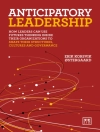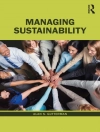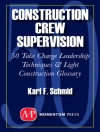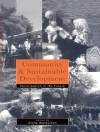With an interdisciplinary focus,
Organizational Ethics equips students with the knowledge and skills they need to make a positive impact in a variety of workplaces. Author Craig E. Johnson builds the text around interdependent levels of organizational behavior, examining ethics at the individual, group, and organizational levels. Self-assessments, reflection features, and application projects give students ample opportunity to practice their ethical reasoning abilities. The
Fifth Edition includes over 25 new case studies on current events and prominent figures, 24 new self-assessments, and new discussions on topics such as cross-cultural ethical conflict and organizational virtue.
Tabela de Conteúdo
List of Case Studies, Self-Assessments, Ethical Checkpoints, and Contemporary Issues in Organizational Ethics
Introduction: Making the Case for Studying Organizational Ethics
Acknowledgments
About the Author
Part One: Practicing Personal Ethics in the Organization
Chapter 1: Ethical Competencies and Perspectives
Developing Ethical Competencies
Defining Organizational Ethics
Ethical Perspectives
Chapter Takeaways
Application Projects
Chapter 2: Ethical Decision Making and Action
Components of Ethical Behavior
Decision-Making Formats
Chapter Takeaways
Application Projects
Chapter 3: Components of Personal Ethical Development
Component 1: Discovering Vocation
Component 2: Identifying Personal Values
Component 3: Developing Character
Component 4: Creating a Moral Identity
Component 5: Drawing Upon Spiritual Resources
Chapter Takeaways
Application Projects
Part Two: Practicing Interpersonal Ethics in the Organization
Chapter 4: Ethical Interpersonal Communication
Dialogue: An Ethical Framework for Interpersonal Communication
Ethical Communication Competencies
Chapter Takeaways
Application Projects
Chapter 5: Exercising Ethical Influence
Questions of Power
Ethical Issues in Influence
Chapter Takeaways
Application Projects
Chapter 6: Ethical Conflict Management
Conflict in Organizational Life
Becoming an Ethical Conflict Manager
Resolving Conflict Through Ethical Negotiation
Combating Aggression and Sexual Harassment
Chapter Takeaways
Application Projects
Part Three: Practicing Leadership, Followership, and Group Ethics
Chapter 7: Leadership and Followership Ethics
Ethical Leadership
Ethical Followership
Chapter Takeaways
Application Projects
Chapter 8: Improving Group Ethical Performance
Acting as a Morally Responsible Team Member
Responding to Ethical Danger Signs
Chapter Takeaways
Application Projects
Part Four: Practicing Ethics in Organizational Systems
Chapter 9: Building an Ethical Organization
Making Ethics Matter
Components of Ethical Culture
Cultural Change Efforts
Chapter Takeaways
Application Projects
Chapter 10: Managing Ethical Hot Spots in the Organization
Ethical Marketing
Ethical Finance and Accounting
Ethical Human Resource Management
Chapter Takeaways
Application Projects
Chapter 11: Promoting Sustainable Organizational Citizenship
The Organization as Citizen
Components of Organizational Citizenship
Promoting Organizational Citizenship
Chapter Takeaways
Application Projects
Chapter 12: Ethics in a Global Society
The Dangers of Globalization and the Challenges of Ethical Diversity
Developing Cross-Cultural Ethical Competence
Chapter Takeaways
Application Projects
Notes
References
Index
Sobre o autor
Craig E. Johnson (Ph D, University of Denver) is professor emeritus of leadership studies at George Fox University in Newberg, Oregon, where he taught undergraduate and graduate courses in leadership, ethics, and management. During his time at the university, he served as founding director of the George Fox Doctor of Business Administration program and chair of the Department of Communication Arts. He is the author of Meeting the Ethical Challenges of Leadership (also published by SAGE) and coauthor, with Michael Z. Hackman, of Leadership: A Communication Perspective. He has published research findings, instructional ideas, and book reviews in the Journal of Leadership Studies, the Journal of Leadership and Organizational Studies, the Journal of Leadership Education, Academy of Management Learning and Education, the International Leadership Journal, Communication Quarterly, Communication Reports, and other journals. When not teaching or writing, he enjoys working out, reading, fly-fishing, volunteering, watching sports, and spending time with his spouse.












